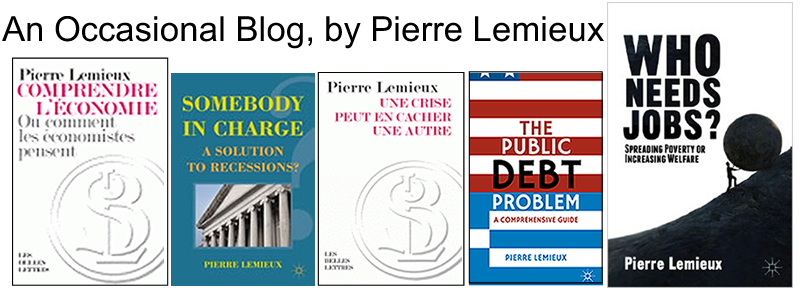Many urban legends circulate about the use of mathematics in economics.
For example, many people think (they have heard that…they know somebody who knew somebody who knew…) that John Maynard Keynes loved and used mathematics. In his 1936 magnum opus, The General Theory of Employment, Interest and Money, Keynes seldom used math. He even attacked economists for using them too much. One can find this by simply reading the General Theory:
It is a great fault of symbolic pseudo-mathematical methods of formalizing a system of economic analysis…that they expressly assume strict independence between the factors involved and lose all their cogency and authority if this hypothesis is disallowed; whereas, in ordinary discourse, where we are not blindly manipulating but know all the time what we are doing and what the words mean, we can keep “at the back of our heads” the necessary reserves and qualifications and the adjustments which we shall have to make later on, in a way in which we cannot keep partial differentials “at the back” of several pages of algebra which assume that they all vanish. Too large a proportion of recent “mathematical” economics are mere concoctions, as imprecise as the initial assumptions they rest on, which allow the author to lose sight of the complexities and interdependencies of the real world in a maze of pretentious and unhelpful symbols. (pp. 297-298)
Interestingly, Paul Samuelson, who did use mathematics a lot (he much contributed to formalizing economic theory with his 1947 Foundations of Economic Analysis), was not as uncritical as many think. One must read his 1952 American Economic Review article “Economic Theory and Mathematics –- An Appraisal”. “Any truth arrived at by way of mathematical manipulation must be translatable into words”, he wrote; “and hence, as a matter of logic, could quite possibly have been arrived at by words alone.”
As mathematician J. Willard Gibbs once said, “mathematics is a language.” No more, no less. And a useful language if only because, speaking it, one can’t say hogwash without it becoming immediately apparent. Well… granted, it can take some time, as Nick Brown’s story suggests (see “The British Amateur Who Debunked the Mathematics of Happiness”, The Guardian, January 18, 2014). But as that very story shows, once an error is obvious to one, it becomes obvious to all. Errors peddled in vague words are more difficult to debunk.
